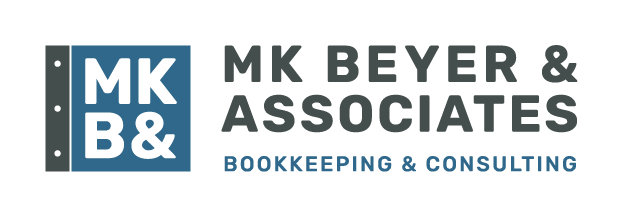DIY Bookkeeping Myths

Whether a business is just getting started or has been operating for many years, proper financial record keeping is essential to the success of the business. So with the importance of having competent and experienced bookkeeping help, why do so many business owners insist on the DIY method? Let’s unravel some of the common myths. Myth 1. YouTube can teach people everything they need to know about keeping their own books. Yes, there are many resources available to help, but there is so much nuance to business financials that it is impossible to teach in a short video. Or even in multiple videos. While YouTube is a great place to find a workflow or process specific to a particular software or integration, many of the videos posted by actual professionals are geared toward other professionals with the background knowledge and training to use it. As practicing bookkeepers with degrees, certifications, and experience, we can attest that not all available videos on YouTube about bookkeeping have accurate or current information. Myth 2. Commercial accounting software makes it so easy to set-up and manage the books that a professional is not needed. Mass marketed bookkeeping softwares are made user friendly to allow savvy business owners to manage their own books, but without training and understanding of basic accounting, it is very difficult to correctly enter and categorize expenses to offer the best, and most accurate picture of a company’s financial position. Sure, there are templates for charts of accounts to choose from and lots of questions asked to set-up an account, but each business is different and it is always better to at least have a professional set-up and train on the software. Remember that creating is cheaper than cleaning when it comes to financial record keeping. Myth 3. Someone being good with numbers means they will be good at their accounting/bookkeeping. We say it all the time, accounting and bookkeeping are as much craft as science and though there are some hard and fast rules, most of accounting is a gray area that requires knowledge and finesse. We may be good with scissors, but that doesn’t mean we should be cutting our own hair (…not that we haven’t tried to save some money – it is never worth the savings). Myth 4. Their accountant handles their bookkeeping at tax time. While an accountant, tax professional, or CPA may create some journal entries at tax time to make the books match the tax return, it is not actually bookkeeping. The process of bookkeeping involves categorization of each transaction as it happens so a business has a full, and current, picture of the financial health of the business. As a side note, CPAs and accountants typically charge more per hour than bookkeepers and will have to do a significant amount of digging for information to handle this at tax time. That translates to a much greater expense and a much bigger headache than necessary at tax time. Bookkeepers work with the tax professional to make tax time as painless as possible for all involved. Myth 5 . Google can tell them everything that can be counted as a business expense. Yes, Google can bring a business owner to the IRS website or to any of the hundreds of articles and blogs on the subject and the documents that talk about legitimate business expenses, but the IRS does not always seem to speak the same English as the rest of us. And though there are many articles and blogs on this subject, they may contain inaccurate, incomplete, or out of date information. It is helpful to have a guide. Because so many business owners go this alone, they include items in their expenses that are not legitimate. This means that their income statement through the year will show lower net income than what their taxes show when their tax person removes those items at the end of the year. This can cause issues with money management for the business, for making business decisions, and for things like health insurance marketplace as the two numbers will not match. Myth 6. A business can save money by doing it themselves. This is one of the most pervasive of the DIY bookkeeping myths and really is the encompassing myth for all of the rest. The truth of this is that typically DIY bookkeeping costs more. Some quick math can show a business owner how much they are losing – basically, how many hours they are spending monthly on bookkeeping multiplied by what they charge (or should charge) by the hour for their time generally equals more than monthly bookkeeping would cost them. A quick way to test this myth is asking a couple of simple questions: How much is their time worth to their business as an hourly rate? How much of their time are they spending handling their bookkeeping tasks? Say they determine their time to be worth $30/hour to their business – which is very low for most personal and professional services, but we will go with it. Then say they spend even five hours a week keeping their own books, that is $600/month they are costing their business in actual productivity loss. If you look at small business averages, most studies find that small business owners actually spend an average of 10 hours a week handling their books, that is $1,200 a month lost. This does not even account for the personal loss of their time, which is worth far more insanity and peace of mind. If they take all of the hours that they spend on keeping their own books and re-allocate them to their personal life, they work to balance themselves. Most small business owners work well over 40 hours a week and may feel like they are married to their business. And if they are actually married, this may put a strain on their relationship with their spouse. If they are a parent, this may put strain on their relationship
